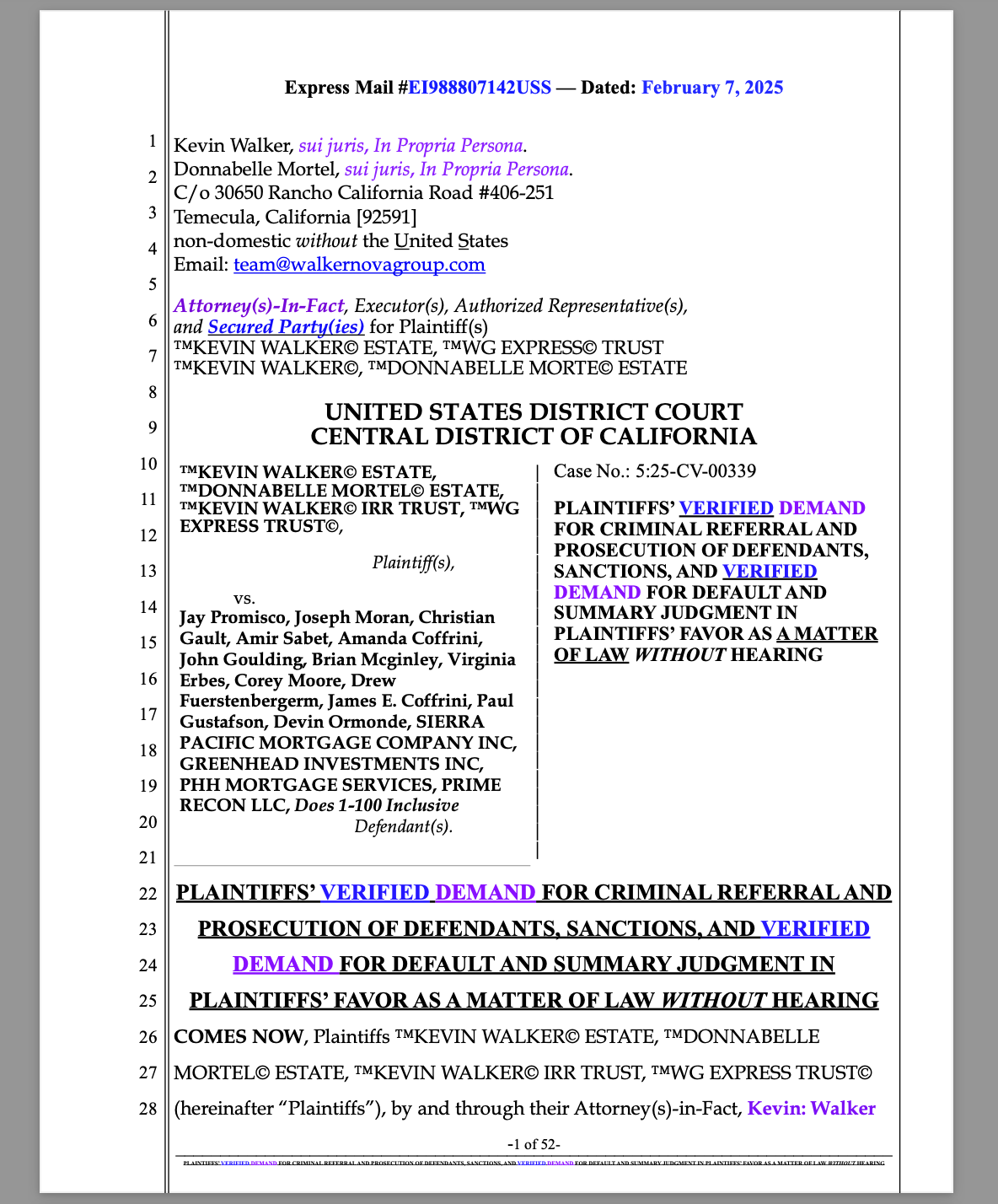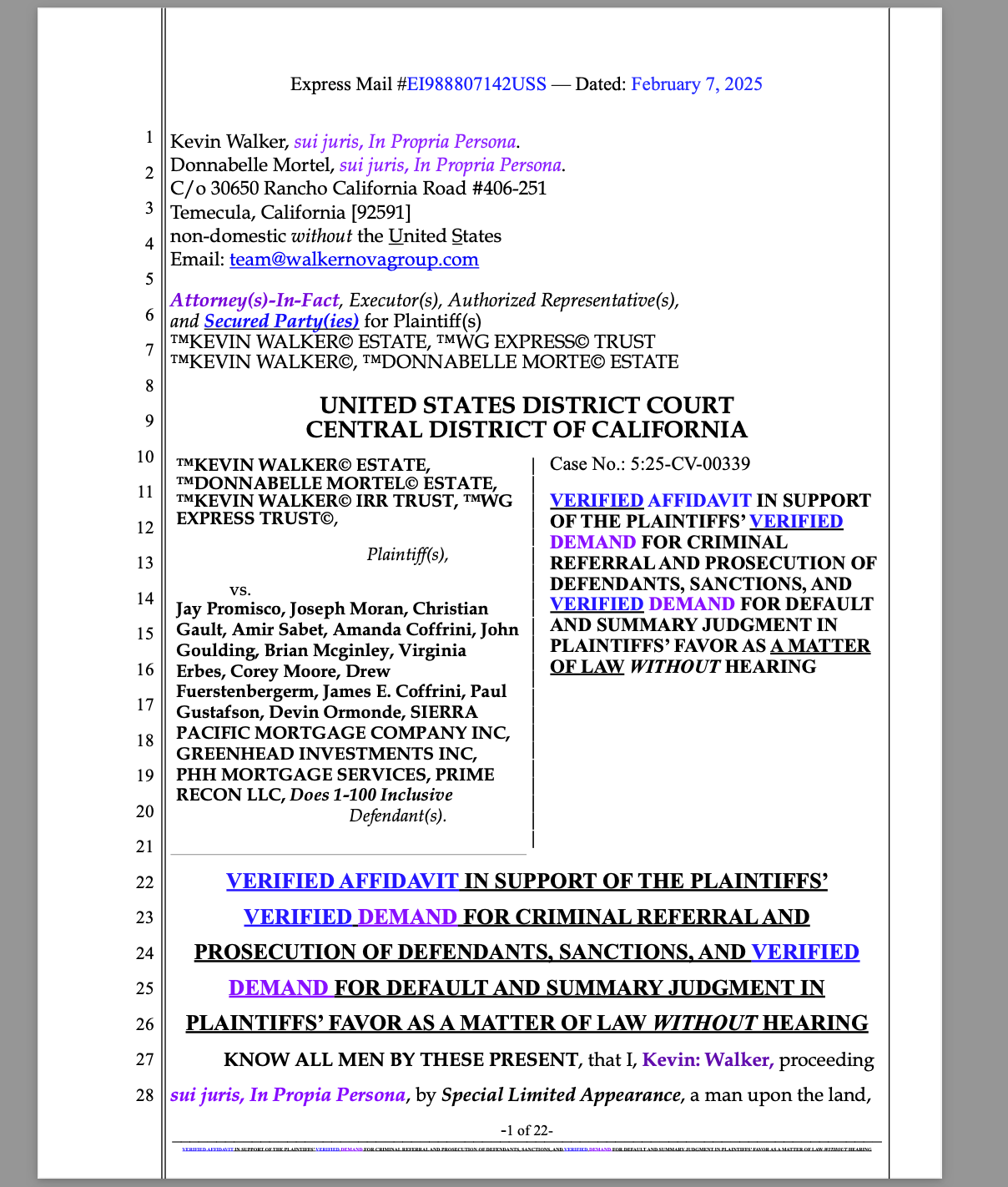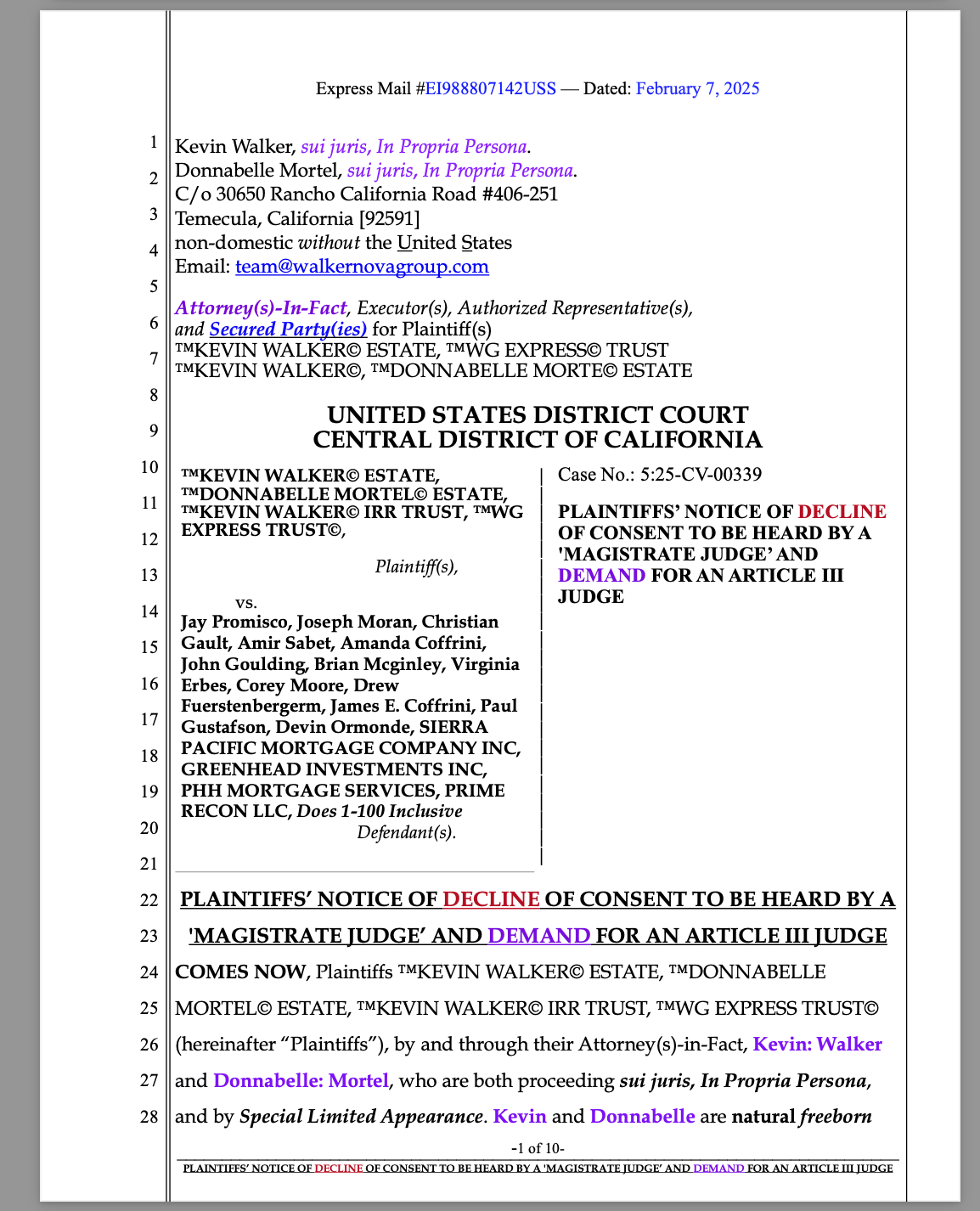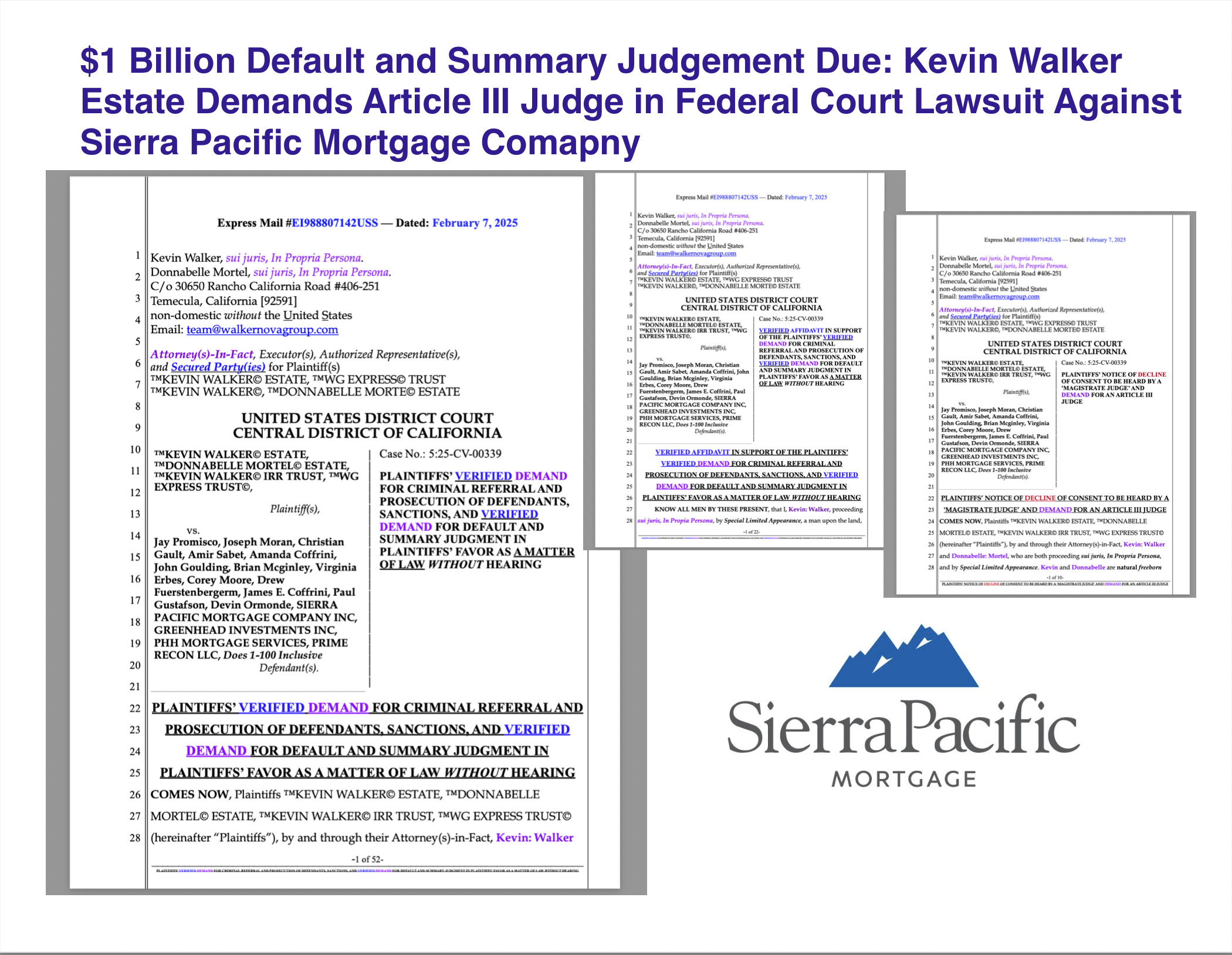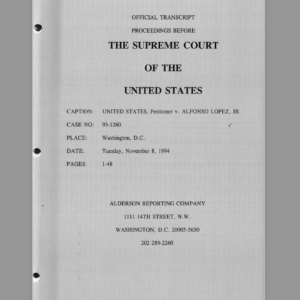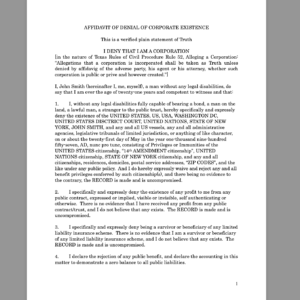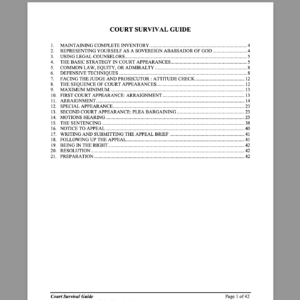Five (5) Unrebutted Affidavits Establish Binding Admissions
Central to the Plaintiffs’ claims are five (5) unrebutted affidavits submitted in compliance with UCC § 3-505, which explicitly establish the Defendants’ dishonor and tacit admission to all claims outlined therein. These affidavits, accompanied by an affidavit certificate, stand as irrefutable evidence in commerce. Under binding legal principles, such as stare decisis, res judicata, and collateral estoppel, the facts contained in the affidavits are now deemed conclusively established and uncontested.
The Defendants, including Jay Promisco and Sierra Pacific Mortgage Company, have failed to respond or rebut the affidavits, constituting silent acquiescence and tacit agreement. As a result, they are legally barred from contesting any of the Plaintiffs’ claims or facts, including allegations of fraud, extortion, and deprivation of rights under color of law.
Presumption of Dishonor and Default
Pursuant to UCC § 3-505, the failure to provide a point-by-point rebuttal places the Defendants in dishonor. The Plaintiffs’ notarized “Affidavit Certificate of Dishonor, Non-Response, Default, Judgment, and Lien Authorization” serves as a formal protest and evidence of dishonor.
Given the Defendants’ non-response, the Plaintiffs have asserted that all issues are settled as a matter of law, with the Defendants presumed in permanent dishonor. The unrebutted affidavits also confirm that the Defendants are debtors in this matter and have no lawful standing.
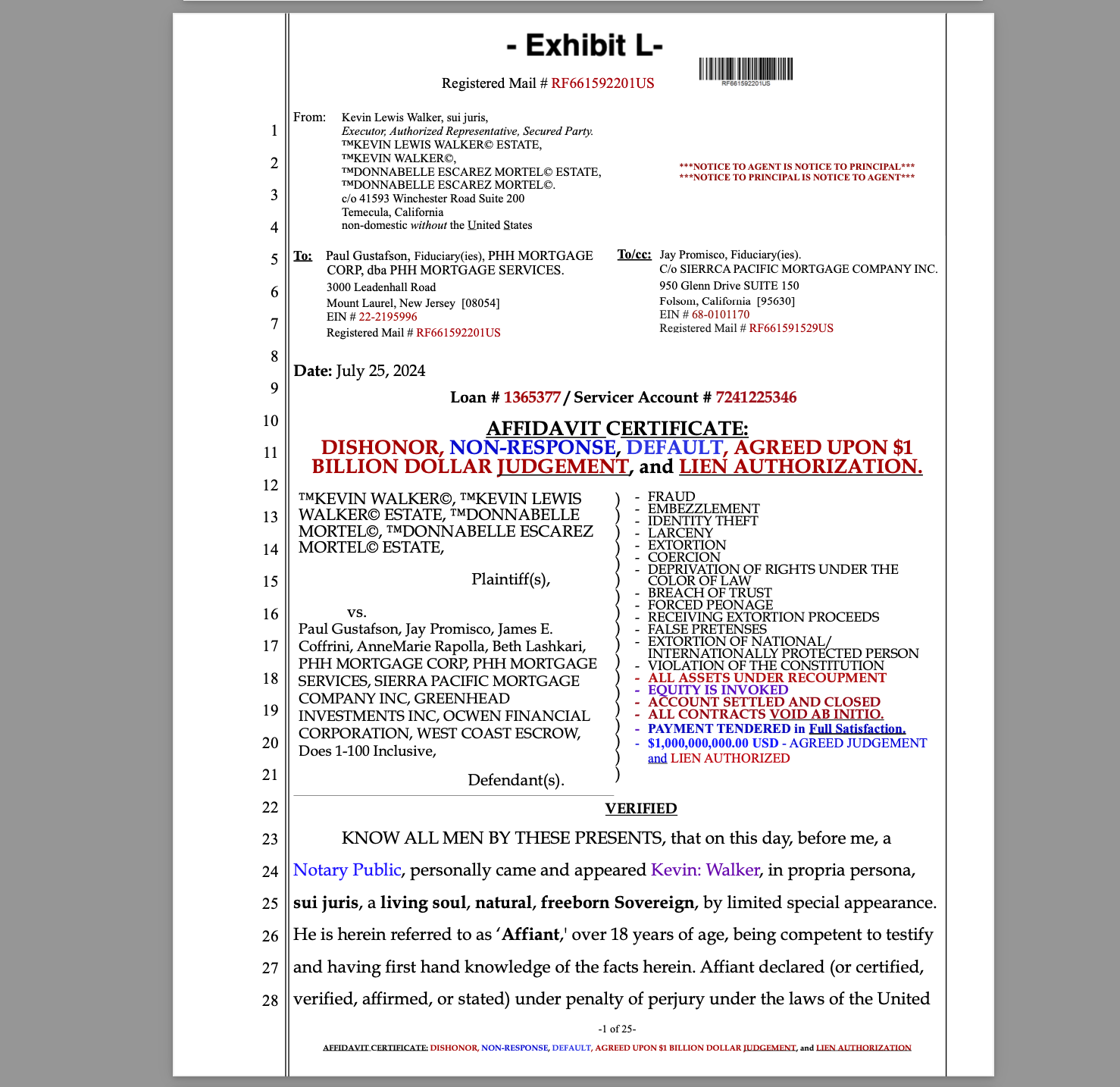
Plaintiffs Seek Criminal Prosecution, Sanctions, and Summary Judgment
To solidify their position, the Plaintiffs have filed a comprehensive “Plaintiffs’ Verified Demand for Criminal Referral and Prosecution of Defendants, Sanctions, and Verified Demand for Default and Summary Judgment in Plaintiffs’ Favor as a Matter of Law Without Hearing.”
This demand is supported by a detailed “Verified Affidavit in Support of the Plaintiffs’ Verified Demand”, which meticulously outlines the Defendants’ violations and affirms the Plaintiffs’ entitlement to summary judgment, criminal referrals, and sanctions.
Key assertions include:
- Criminal Referral: Plaintiffs seek immediate criminal prosecution for fraud, extortion, and other alleged crimes.
- Sanctions: Punitive measures are requested against the Defendants for their willful dishonor and failure to rebut the affidavits.
- Summary Judgment: Plaintiffs demand judgment in their favor as a matter of law, without the need for further hearings, given the Defendants’ failure to contest the affidavits.
Summary Judgment as a Matter of Law: Rule 56 and California Legal Standards
The Plaintiffs’ filings in Kevin Walker Estate v. Sierra Pacific Mortgage Company assert that summary judgment is appropriate under both federal and California state law. Pursuant to Federal Rule of Civil Procedure 56, summary judgment must be granted when there is no genuine dispute as to any material fact and the moving party is entitled to judgment as a matter of law. Plaintiffs have demonstrated through five (5) unrebutted affidavits that the Defendants have tacitly agreed to all factual assertions, thereby eliminating any triable issues of fact.
Under Rule 56, the burden shifts to the Defendants to present admissible evidence to rebut the claims presented in the Plaintiffs’ motion. The absence of any such evidence constitutes a legal admission to the Plaintiffs’ claims, making summary judgment mandatory.
California Law: CCP § 437c(c)
California law provides similar authority under California Code of Civil Procedure § 437c(c), which states:
“The motion for summary judgment shall be granted if all the papers submitted show that there is no triable issue as to any material fact and that the moving party is entitled to a judgment as a matter of law.”
Given that the Defendants failed to rebut any of the five affidavits or provide evidence disputing the claims, the affidavits now stand as irrefutable proof. Under California Evidence Code § 664, an official duty is presumed to have been performed, and the content of unrebutted affidavits is accepted as true.
Legal Implications for the Defendants
With the affidavits uncontested, the facts have been conclusively established, and Defendants are legally barred from raising any further defenses. As a matter of law, Plaintiffs are entitled to:
- Summary Judgment: Immediate resolution in their favor based on the undisputed facts.
- Judgment Without Hearing: The uncontested affidavits have already resolved all material issues, negating the need for further proceedings.
- Binding Admissions: The principles of res judicata, collateral estoppel, and stare decisis apply, preventing Defendants from contesting the facts or outcome.
Binding Legal Consequences
The Defendants’ silent acquiescence has resulted in their complete agreement to the claims presented in the affidavits, including the authorization of a $1 Billion commercial lien against them. Furthermore, the Plaintiffs have explicitly invoked House Joint Resolution 192 (Public Law 73-10), affirming the federal government’s obligation to discharge debts dollar-for-dollar.
Under legal doctrines and Uniform Commercial Code provisions, the Defendants’ conduct now stands as an unequivocal admission of liability, making Plaintiffs’ demands legally binding.
A Turning Point in Legal History
The Kevin Walker Estate’s case against Sierra Pacific Mortgage Company sets a critical precedent for the enforcement of affidavit-based claims and the legal consequences of tacit agreements. As the matter progresses, the Plaintiffs’ insistence on justice and constitutional adherence is likely to have profound implications for commercial and legal practices.
